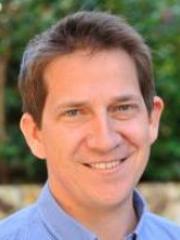Professor Nicholas West

Primary research interest
Tuberculosis microbiology
About me
After completing my PhD in 2000, I began postdoctoral research at the University of Oxford, UK, and then later at the Imperial College London. During this time I spent significant time collaborating and working at the Institute Pasteur in Paris. In 2004 I returned to Australia as a postdoctoral scientist at the Centenary Institute in Sydney where I began researching tuberculosis. I moved to The University of Queensland as a senior Lecturer and Research Fellow in mid-2012.
Donate to tuberculosis research
Research focus and collaborations
Lab: tuberculosis research
My laboratory is committed to understanding the mechanisms by which Mycobacterium tuberculosis causes Tuberculosis (TB). One in three people in the world are infected with this bacterium, resulting in approximately 4,000 deaths every day. My lab utilises modern molecular genomic technologies to identify the genetic requirements for M. tuberculosis to cause TB. This information is being translated into the development of new therapies and control measures for TB. Research within the group will fall largely into one of the following three themes: Essential Gene Identification in M. tuberculosis, Understanding Latency and Targeted Drug Development.
National research collaborations
- University of Sydney, School of Chemistry
- University of Sydney, Sydney Medical School
- University of Sydney, Faculty of Pharmacy
- Centenary Institute, Mycobacterial Research Laboratory
International collaborations
- National University of Singapore, Singapore
- University of Oxford, UK
Funded projects
- 2007-2009: NHMRC - New Investigator Grant, Identification of Essential Components of Mycobacterium tuberculosis - $396,342
- 2011-2013: NHMRC- Project Grant, Genes to Drugs for TB - $702,165
- 2011-2014: NHMRC - Career Development Fellowship (level 2), Tuberculosis: Genes to Drugs - $424,902
- 2012-2013: UQ NSRSF Award, Characterisation of metabolic pathways in M. tuberculosis and the Development of Inhibitors - $12,000
- 2013-2015: NHMRC - Project Grant, Latent Tuberculosis Infection - $569,737
- 2013-2015: NHMRC- Project Grant, Improving subunit vaccines for tuberculosis for pulmonary delivery - $615,221
Teaching interests
Undergraduate
- MICR3003, Molecular Microbiology (Course Co-ordinator)
- MICR3001, Microbes and Human Health
- BIOL2202/BIOL2902, Genetics/Advanced Genetics
Postgraduate coursework
- MICR6008, Immunology and Infectious Diseases
Student supervision
For many years now there has been a constant presence of undergrad and postgrad research students in the group. Currently, I supervise students at all levels, ie. undergraduate research, Hons, MSc. and PhD. Enquiries from students regarding available positions are always welcome.
Achievements and awards
- NHMRC Postdoctoral Reference Group Committee member (2012-)
- NHMRC CDA2 Research Fellow (2011)
- Centenary Institute “Innovation Award” (2010)
- Australian Society of Microbiology NSW/ACT branch Executive (2010-2012)
- Chair, Scientific Program; Australian Society of Microbiology National Conference, Brisbane (2018)
Featured publications
- Tan, Lendl, Strong, Emily J., Woods, Kyra and West, Nicholas P. (2018) Homologous alignment cloning: a rapid, flexible and highly efficient general molecular cloning method. PeerJ, 6 6: e5146. doi:10.7717/peerj.5146
- Strong, Emily J. and West, Nicholas P. (2018) Use of soluble extracellular regions of MmpL (SERoM) as vaccines for tuberculosis. Scientific Reports, 8 1: 5604. doi:10.1038/s41598-018-23893-3
- Ng, Benjamin Y. C., Wee, Eugene J. H., Woods, Kyra, Anderson, Will, Antaw, Fiach, Tsang, Hennes Z. H., West, Nicholas P. and Trau, Matt (2017) Isothermal point mutation detection: toward a first-pass screening strategy for multidrug-resistant tuberculosis. Analytical Chemistry, 89 17: 9017-9022. doi:10.1021/acs.analchem.7b01685
- Tran, Anh T., Watson, Emma E., Pujari, Venugopal, Conroy, Trent, Dowman, Luke J., Giltrap, Andrew M., Pang, Angel, Wong, Weng Ruh, Linington, Roger G., Mahapatra, Sebabrata , Saunders, Jessica, Charman, Susan A., West, Nicholas P., Bugg, Timothy D. H., Tod, Julie, Dowson, Christopher G., Roper, David I., Crick, Dean C., Britton, Warwick J. and Payne, Richard J. (2017) Sansanmycin natural product analogues as potent and selective anti-mycobacterials that inhibit lipid I biosynthesis. Nature Communications, 8 14414. doi:10.1038/ncomms14414
- Ng, Benjamin Y. C., Wee, Eugene J. H., West, Nicholas P. and Trau, Matt (2015) Naked-eye colorimetric and electrochemical detection of Mycobacterium tuberculosis—toward rapid screening for active case finding. ACS Sensors, 1 2: 173-178. doi:10.1021/acssensors.5b00171
Researcher biography
Associate Professor West is a molecular microbiologist, expert in bacterial pathogenesis. He is Head of "Tuberculosis Research" in the School of Chemistry and Molecular Biosciences, University of Queensland. Nick has a particular interest in drug development for TB. His research utilises modern molecular technologies to identify the genetic requirements for Mycobacterium tuberculosis to cause Tuberculosis (TB) with these genetic discoveries translated into novel antibiotic therapies. Research within his group falls largely into one of the following four themes: Essential Gene Identification in M. tuberculosis, Understanding TB Latency, Targeted TB Drug Development and Improving TB Vaccination.
Nick conducted postdoctoral research at the University of Oxford and Imperial College London. Returning to Australia in 2004, he spent several years at Sydney's Centenary Institute as an Associate Faculty member before relocating to University of Queensland in 2012. In addition to drug development, Nick's research portfolio includes programmes of vaccine and diagnostic development and testing.
